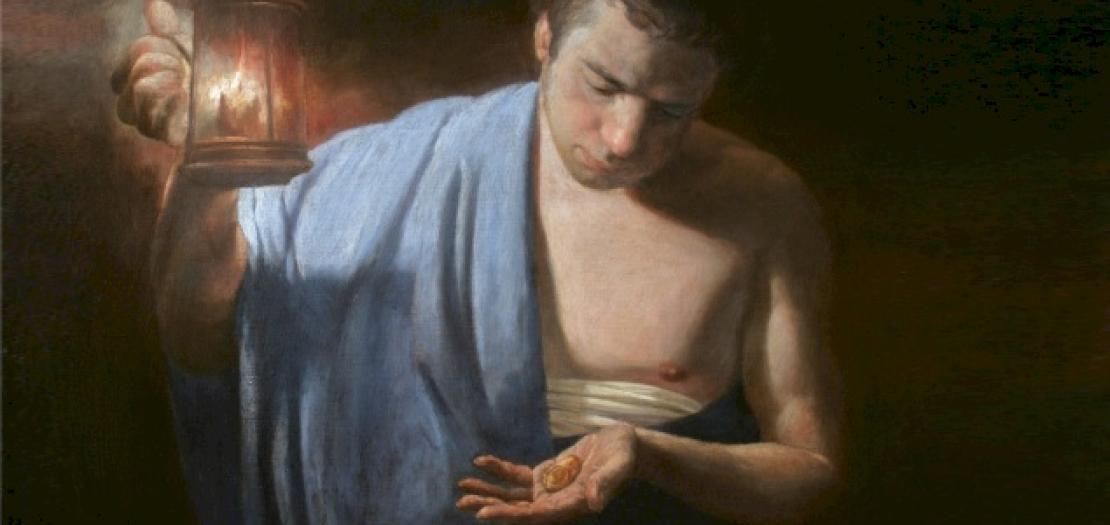Issued by the Catholic Center for Studies and Media - Jordan. Editor-in-chief Fr. Rif'at Bader - موقع أبونا abouna.org

Following is the text of the meditation by His Beatitude Cardinal Pierbattista Pizzaballa, Latin Patriarch of Jerusalem, for the XXXIII Sunday in ordinary time, November 19, 2023:
In the parable told by Lord Jesus in today's Gospel passage (Matthew 25:14-30) we find a dissonant element, on which we dwell.
Indeed, the man of whom the parable speaks, has a strange way of settling his accounts.
Before setting out on a long journey, he had entrusted his goods to his servants: to one five talents, to another two, to another one.
Two of them employed them and earned as many; the third hid his talent in a hole, and simply returned to him what he had received.
The strange thing happens precisely at the moment of restitution, because, from what the parable says, this restitution does not take place. On the contrary.
The one who had received five talents is called to account, and says that he had earned five more; the narrative, at this point, does not say that the master takes all the gain, but that, rejoicing in the servant's behavior, he promises him much greater goods: "Well done, my good and faithful servant. Since you were faithful in small matters, I will give you great responsibilities. Come, share your master’s joy." (Matthew 25:21)
And at the end of the parable, the master will order the talent to be taken away from the servant who did not make it bear fruit and will say to give it to the one who has ten talents (Matthew 25:28): all the talents, both those received at the beginning and those earned later, thus remained with the servant, they are not returned to the master.
The same thing happens with the one who had received two talents: the master also uses the same words for him. (Matthew 25:23)
What does all this mean?
It seems to me that what one "earns" in life, making fruitful the seed of eternal life that the Father has put in each person that remains his.
It is not as in the work of a laborer in this world: he works, and then he delivers his work to the master. With the Father, it is not like that: he will not be the one to take away from us what beautiful things have grown in our lives through his gift.
He does not give us His gifts in order to demand them back increased, but so that His presence in our lives may grow with us, and so that by growing, He may bring us to an encounter with Him.
The Father is the one who, at the end of life, makes us partakers, makes us partake of all his joy, after we have experienced only a little of it in life (Mt 25:21, 23). If in this little we have been attentive, vigilant, courageous and creative, then the Father will rejoice with us and we with Him.
This is exactly the opposite of the image of God that transpires in the words of the third servant.
For he thought of the master as a man capable only of demanding, and not of giving; a man concerned about himself, and not about his servants.
Nevertheless, belying the fact that God is a demanding master are the words we quoted earlier, “Take the talent from him and give it to the one with ten." (Matthew 25:28) The master does not even want the talent of the slacker servant back for himself, but demands that it be given to the one who has made it bear fruit.
Thus, at the origin of the third servant's behavior lies a distorted image of God, a relationship with him not based on trust and love; that is why he was afraid of losing the talent and hid it, just as Adam and Eve had hidden themselves after sinning.
In fact, the only way to lose it is precisely to hide it, not to make it bear fruit, that is, to extinguish the life of God within us.
The treasure God gives us inherently demands to be put into circulation: a freedom that does not get its hands dirty, that does not act, that is afraid to take risks, is unthinkable.
If this happens, the gift goes out, like the light of the lamp mentioned in last Sunday's Gospel. (Matthew 25:1-13)
If instead we live in trust, we will know how to live the time of waiting with the creativity characteristic of love, which knows how to seize every gift as a possibility for a good life.
+Pierbattista
 Jerusalem: Augusta Victoria Hospital offers free treatment for Gaza children diagnosed with leukemia
Jerusalem: Augusta Victoria Hospital offers free treatment for Gaza children diagnosed with leukemia  Text of meditation by Cardinal Pizzaballa, Latin Patriarch of Jerusalem, for second Sunday of Christmas
Text of meditation by Cardinal Pizzaballa, Latin Patriarch of Jerusalem, for second Sunday of Christmas 




